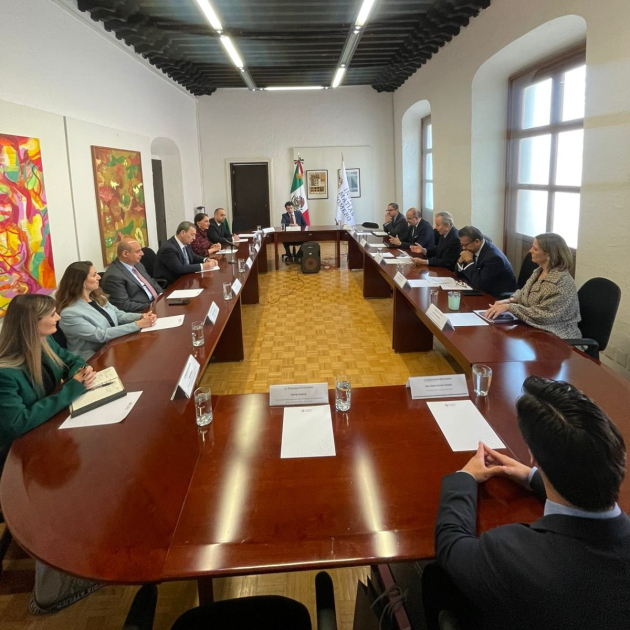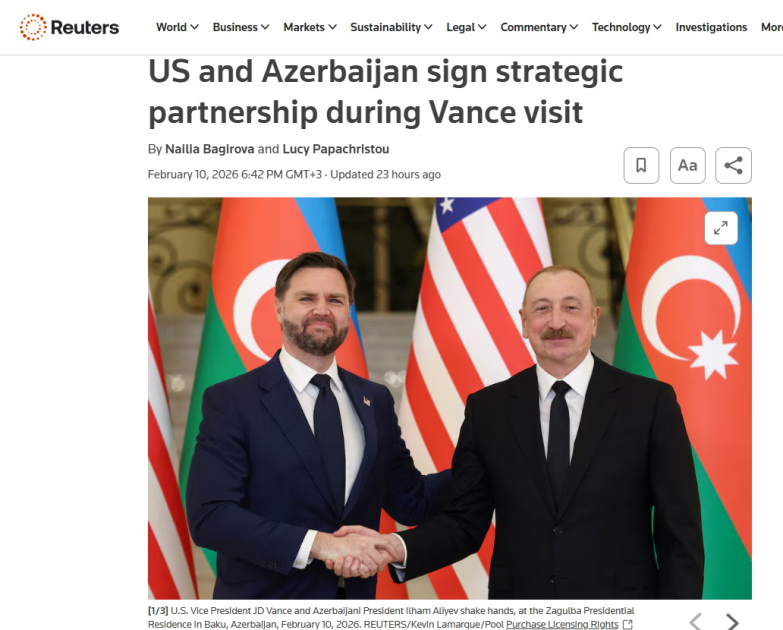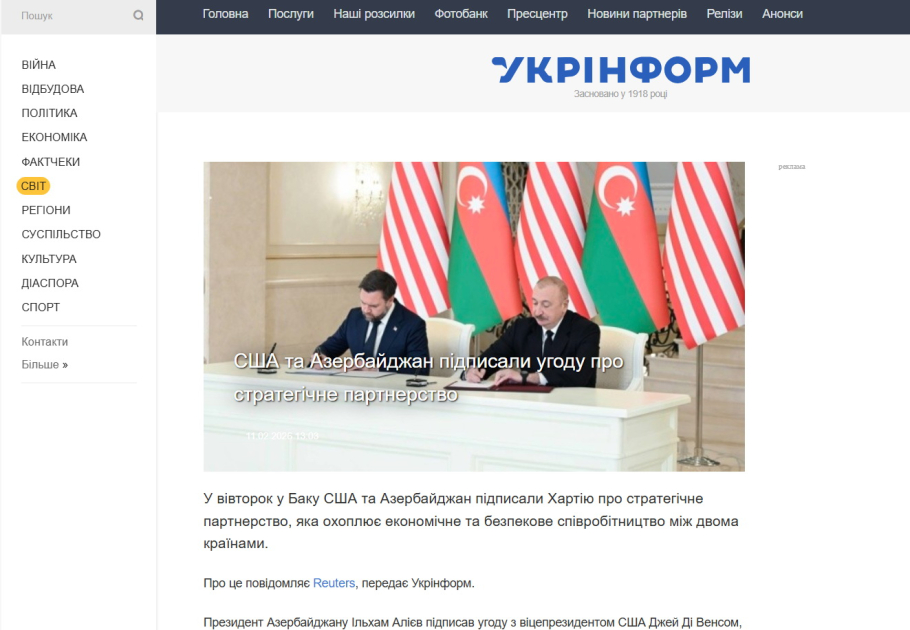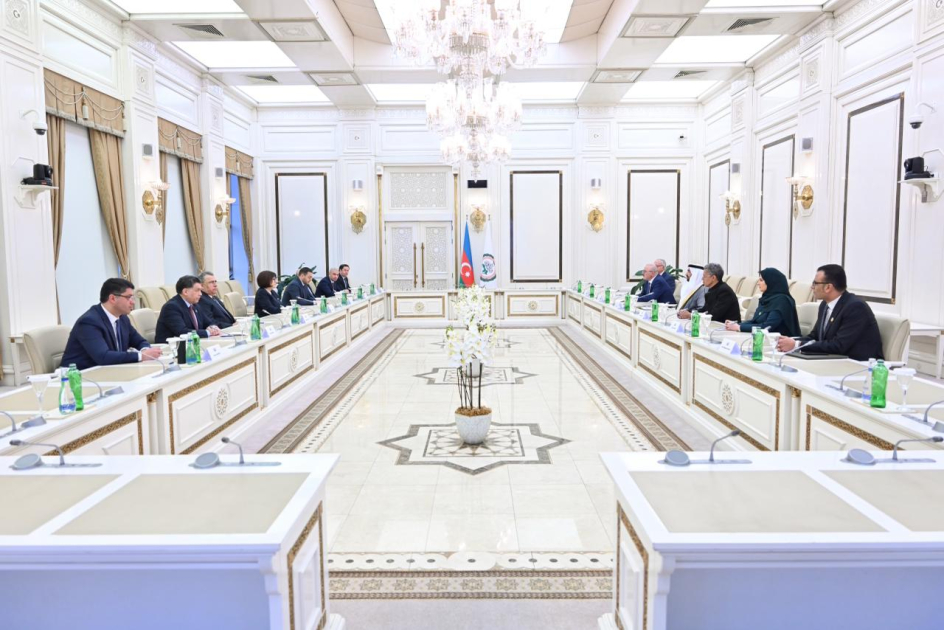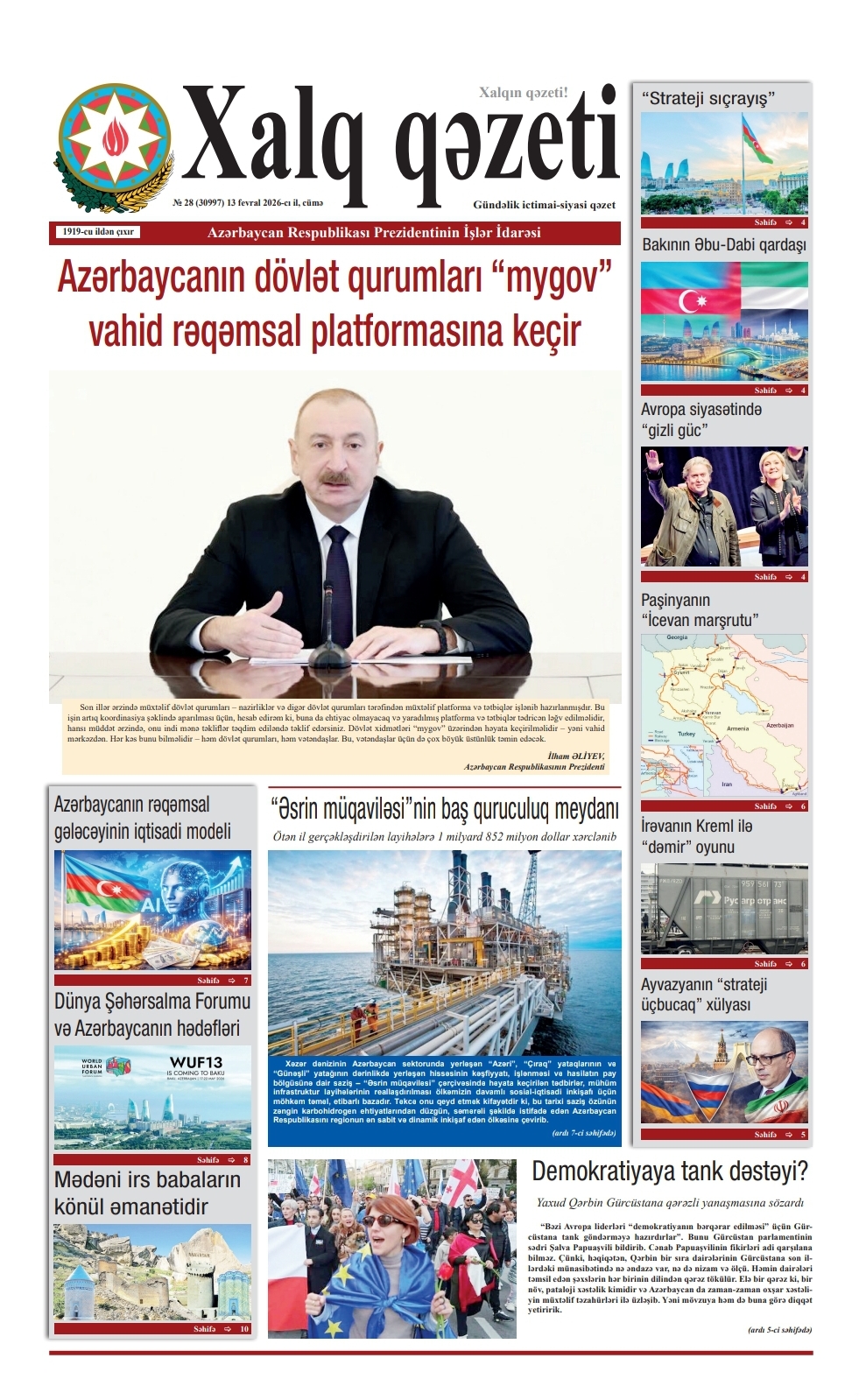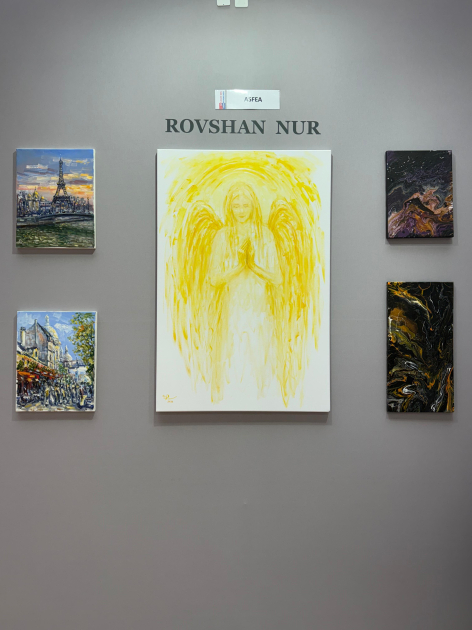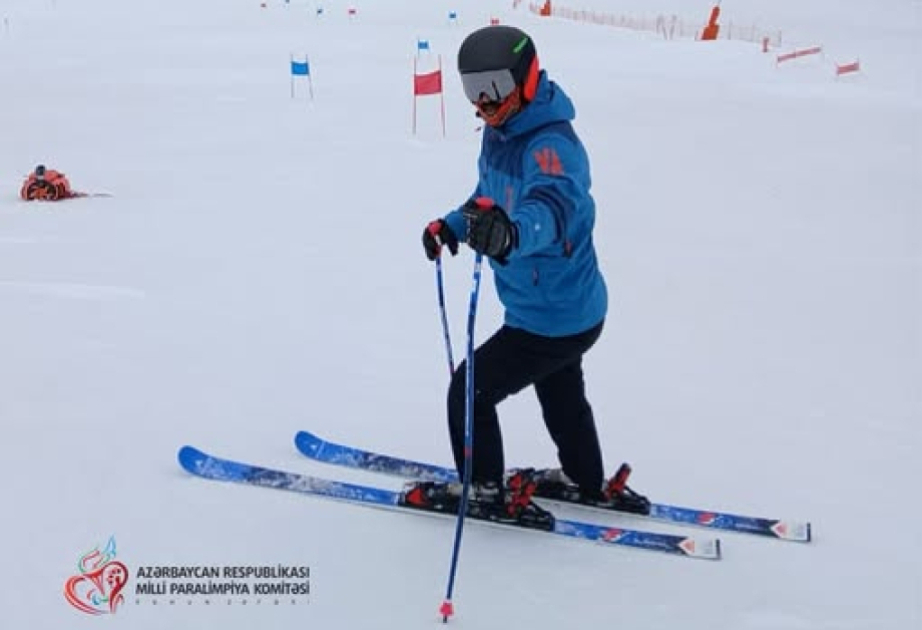On January 7, 2025, President Ilham Aliyev of Azerbaijan granted a comprehensive interview, addressing a range of topics of both domestic and international importance. His comprehensive remarks shed light on Azerbaijan's socioeconomic performance, its global commitments, governance reforms, and its role in fostering regional stability and economic growth
Socioeconomic Performance in 2024
President Aliyev highlighted Azerbaijan’s strong economic performance in 2024, with a gross domestic product (GDP) growth exceeding 4 percent. The non-oil sector played a pivotal role in this achievement, growing by over 6 percent. This shift indicates that Azerbaijan's economy is becoming less dependent on oil, a longstanding strategic goal. The president attributed this success to years of well-thought-out economic reforms, transparency, and policies aimed at combating monopolistic practices. International rating agencies have taken note of these achievements, demonstrating a positive change in their assessments of Azerbaijan. President Aliyev pointed out that Azerbaijan has managed to increase its financial reserves despite a record-level budget, largely due to improved governance, transparency, and resource optimization. He emphasized that political independence is deeply tied to economic independence, a principle Azerbaijan upholds through sound fiscal policies and resource management.
Social justice remains a cornerstone of Azerbaijan’s domestic policy. Over the past few years, the government has implemented four major social packages, allocating more than 7 billion manats to enhance public welfare.
Role in COP29
COP29, hosted in Baku, marked a significant milestone for Azerbaijan's international standing. President Aliyev expressed satisfaction with the summit's outcomes, particularly the commitment to mobilize $300 billion for climate action, a significant increase from the previous $100 billion pledge. He underscored that this achievement reflected Azerbaijan's growing role in global environmental diplomacy.The summit was an indicator of Azerbaijan’s proactive engagement in such forums, enhances its visibility and strengthens its role as a responsible global actor.
Muslim Solidarity
Azerbaijan’s membership in the D8 Organization for Economic Cooperation, a group representing over one billion people and 60 percent of the Muslim world’s economy, was a significant development. President Aliyev called this membership both an honor and a responsibility. Azerbaijan aims to actively contribute to this organization by promoting economic collaboration and solidarity among Muslim countries.
The president highlighted Azerbaijan's consistent efforts to foster Muslim solidarity. Through initiatives like hosting the Fourth Islamic Solidarity Games and supporting interfaith dialogue, Azerbaijan has established itself as a valuable member of the Muslim community. At international forums, including the United Nations, Azerbaijan has consistently advocated for the interests of Muslim countries.
Liberation of Villages in Gazakh District
President Aliyev addressed the liberation of four villages in the Gazakh district, emphasizing the failure of Armenia’s decades-long occupation policy. He criticized Armenia for using negotiation processes as a facade to perpetuate its occupation and pointed to the inflammatory statements of Armenia’s first president as evidence of their unwillingness to engage in meaningful dialogue. The liberation of four villages in the Gazakh district marked another significant achievement in Azerbaijan’s ongoing efforts to resolve conflicts with Armenia. President Aliyev criticized Armenia’s long-standing occupation policies, which obstructed meaningful dialogue and perpetuated regional instability. He reaffirmed Azerbaijan’s commitment to a clear and fair delimitation process, stating that the existing conditional border is not fixed and must be clarified based on historical and strategic factors.
Reconstruction and Resettlement in Karabakh and East Zangezur
Azerbaijan’s commitment to rebuilding the liberated territories was a recurring theme in the interview. President Aliyev detailed ongoing construction projects in Karabakh, East Zangezur, and the Nakhchivan Autonomous Republic. By the end of 2025, former internally displaced persons (IDPs) will be resettled in about 30 newly constructed settlements. The president emphasized the integrated development of Karabakh, East Zangezur, and Nakhchivan, envisioning them as a unified economic, social, and green energy hub. Master plans for cities like Nakhchivan and Ordubad are being developed, with a focus on sustainable and inclusive growth.
Energy Strategy and Gas Exports
Azerbaijan's role as a major energy supplier was another highlight of the interview. President Aliyev revealed that the country has significantly increased its gas exports to Europe, supported by infrastructure like the Southern Gas Corridor and newly inaugurated interconnectors. Currently, Azerbaijani gas reaches 12 countries, making the nation one of the leading gas suppliers in Europe in terms of geographic reach. The president stressed the importance of continued investment in Europe’s gas infrastructure to ensure reliable energy supplies. He emphasized that Azerbaijan takes its commitments seriously, providing crucial support to countries that rely on even modest volumes of gas.
Geopolitical Dynamics in the Middle East
Commenting on the Israeli-Palestinian conflict, President Aliyev reiterated Azerbaijan’s longstanding support for a two-state solution. This position aligns with Azerbaijan’s broader approach to international peace and stability, which seeks to balance principled stances with pragmatic diplomacy.
Azerbaijan’s foreign policy continues to prioritize strong relations with neighboring countries and global powers. The President highlighted productive ties with the European Union, France, Iran, and Türkiye.
Governance Reforms
President Aliyev elaborated on the new governance model being implemented for state-owned companies. By establishing boards of directors and appointing state officials as heads, Azerbaijan has enhanced transparency and accountability in these entities. This approach has helped uncover and address inefficiencies that plagued state-owned companies for years. The digitalization of Azerbaijan’s transport sector was another reform highlighted during the interview. Such innovations reflect Azerbaijan’s commitment to leveraging technology for improved governance.
President Ilham Aliyev’s interview highlighted Azerbaijan’s remarkable progress in 2024 and its vision for the future. From socioeconomic reforms and energy exports to regional stability and international cooperation, Azerbaijan is emerging as a model of resilience and innovation. Under President Aliyev’s leadership, the nation continues to balance domestic priorities with global responsibilities, charting a course for sustainable development and prosperity.
By Mr. Khalid Taimur Akram, Executive Director, Pakistan Research Center for a Community with Shared Future (PRCCSF), Islamabad


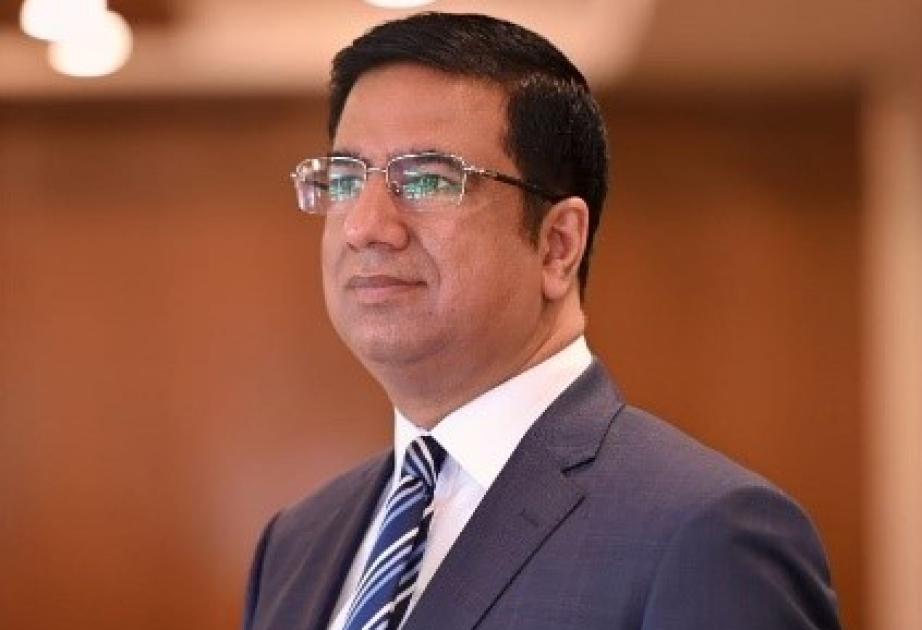

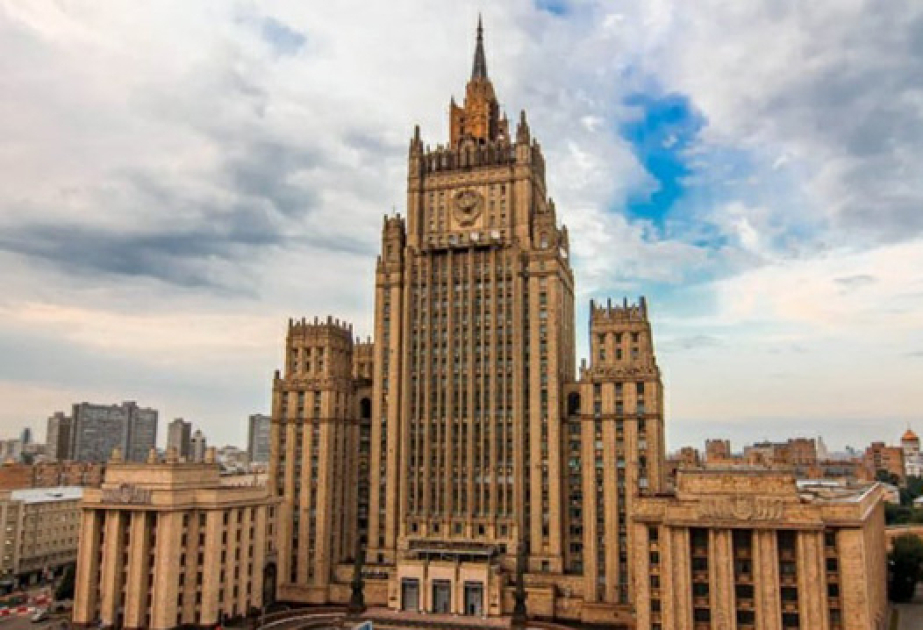
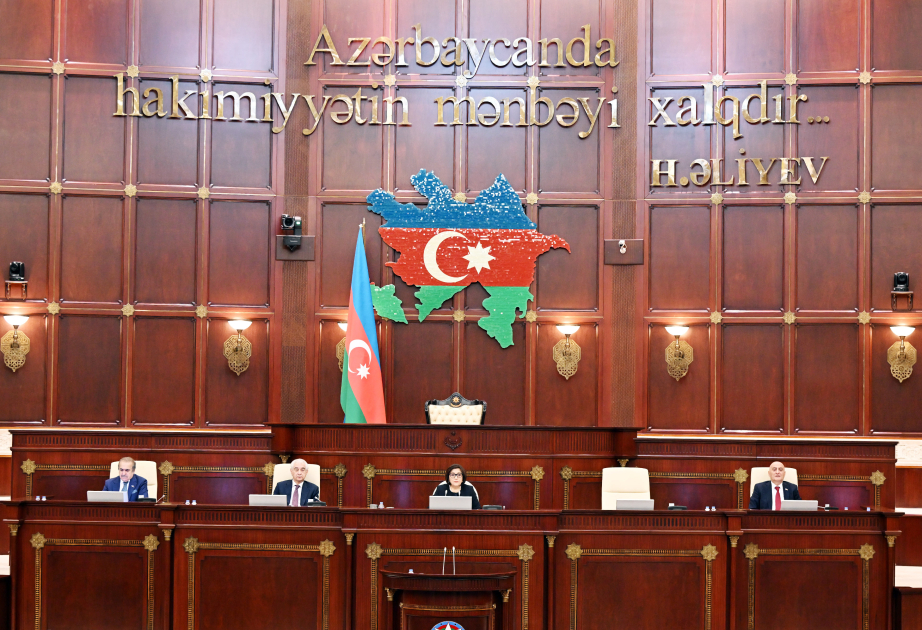
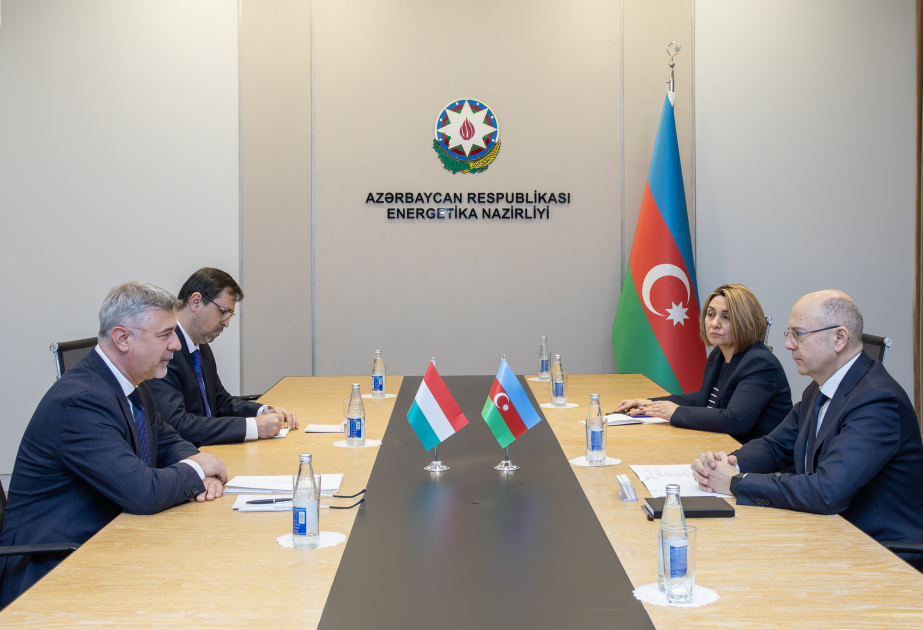
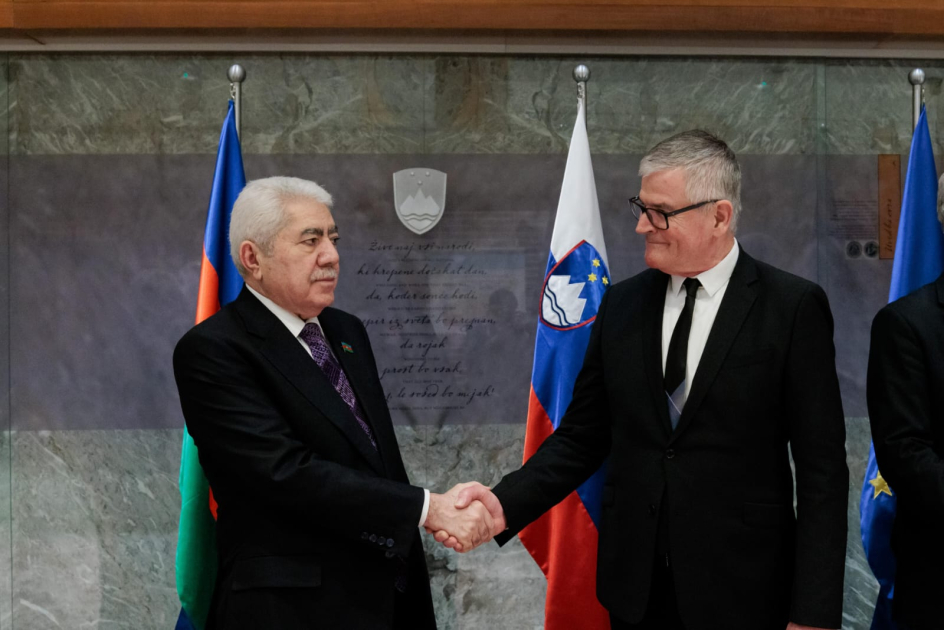
.png)
